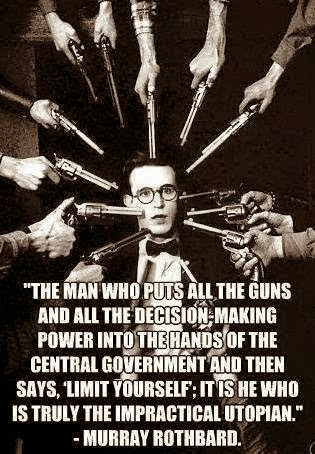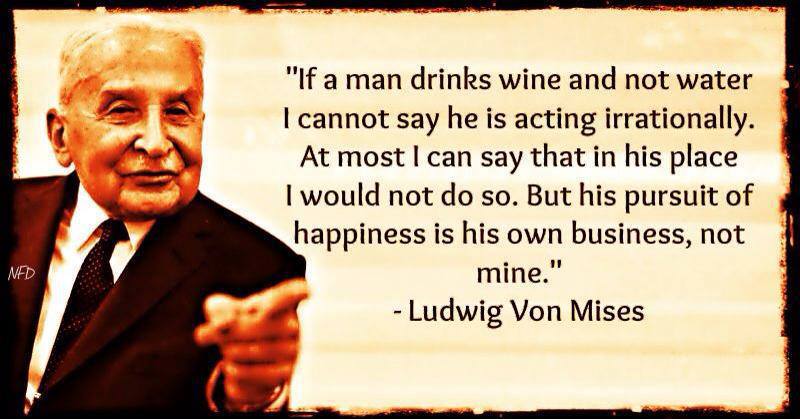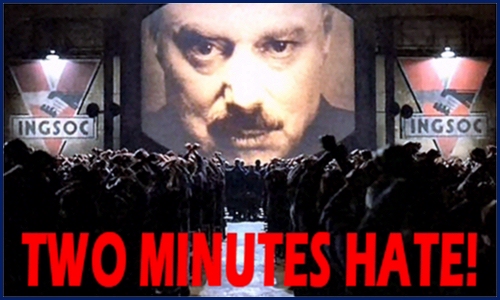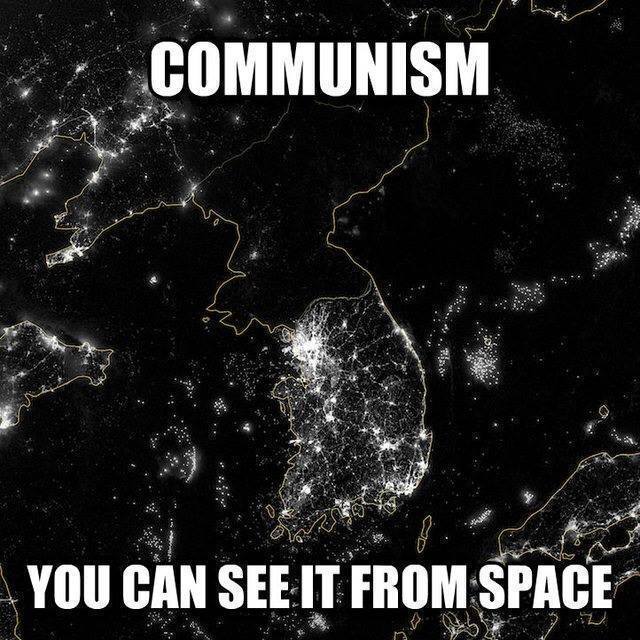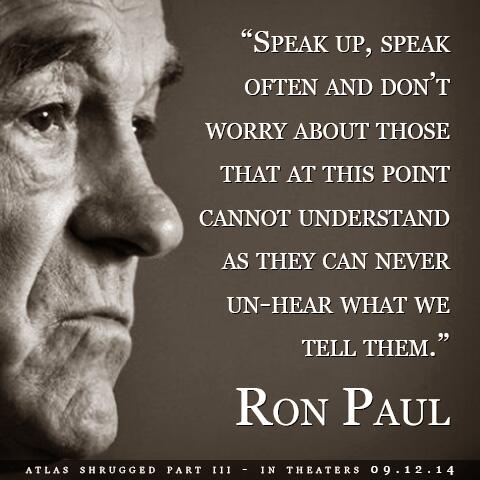I finished part 2 by introducing the Oath Keepers who, when the rioting was the most intense in Ferguson, were the only ones protecting private property while the police and National Guard were busy antagonizing protesters and protecting their own headquarters. For those who are unfamiliar, Oath Keepers is a national organization comprised of current and former law enforcement officers and military personnel who will uphold their oaths to the Constitution and defend her against all enemies foreign and domestic. More importantly, they have a list of 10 commandments that they will not obey, things like disarm the American citizenry, force Americans into any kind of internment camp, or infringe on the rights of Americans to free speech or to peaceably assemble and petition their government.
Obviously, everyone who goes into national service takes this oath, but given the encroachments on civil liberties we've seen from the vast expansion of the federal government since 9/11, founder Stewart Rhodes thought it was necessary to create this organization to remind these personnel that their oath was to the Constitution, not to any political figure. Oath Keepers draw a line in the sand and vow to not just "follow orders" as many soldiers and public servants in the past have done while committing great atrocities to some of their own people.
Interestingly, although perhaps not surprisingly, the St. Louis county police chief tried to oust the Oath Keepers for providing security "without a license". So the whole town is burning and the only people you're actually trying to hassle is one of the only groups of people who are doing anything at all to protect people and property from arsonists and looters? It's no wonder so many people have such a poor opinion of the police right now.
Yet despite sinking approval ratings of the police and Congressional approval ratings that have been near rock bottom for some time now, most people are at a loss for what to do to change things. Their best hope is that somebody somewhere will propose some minor changes to the law and then hope that enough people get behind the proposed changes that their legislators will vote for it.
Herein lies the problem with "public goods" is that nobody has ownership over them. Therefore, nobody can really enact any meaningful changes without a lengthy, drawn out political process and then they just have to hope for the best that the changes will be effectively implemented. Contrast this with private enterprise that can respond to market forces with relative speed and ease, especially with the threat of competition always looming over their heads. Government services have no such worries and this is nowhere more evident than within the law enforcement sector. If we generally recognize monopolies in business as bad can we at least, in light of the recent tragedies in Ferguson and New York as just two very recent examples, begin to recognize that government monopolies are equally bad if not more so because their monopoly is on force and violence?
This is why real life examples like the Detroit-based Threat Management Center are so important. The indispensable Will Grigg wrote a detailed piece on their security practices. In it, the TMC spokesperson explains,
"...[their] approach to public safety is “precisely the opposite of what police are trained and expected to do,” says the 44-year-old entrepreneur. The TMC eschews the “prosecutorial philosophy of applied violence” and the officer safety uber alles mindset that characterize government law enforcement agencies. This is because his very successful private security company has an entirely different mission – the protection of persons and property, rather than enforcing the will of the political class."He continues,
“Unlike the police, we don’t respond after a crime has been committed to conduct an investigation and – some of the time, at least – arrest a suspect,” Brown elaborates. “Our approach is based on deterrence and prevention. Where prevention fails, our personnel are trained in a variety of skills – both psychological and physical – to dominate aggressors without killing them.”How novel. So if they see someone standing on the street looking suspicious you mean they won't just automatically put them in a chokehold and take them down for refusing to comply?
Naturally, law enforcement agencies see organizations like Oath Keepers and Threat Management Center as competition, hence why they were so quick to try and shut down the Oath Keepers in Ferguson. But it is because of the increasingly clear failure of the government agencies to do their job that grassroots groups and private security agencies need to exist in the first place. If private businesses, neighborhoods, and citizens already utilize private security for myriad security needs, is it really such a far cry for us to start transitioning over to such methods on a wider scale?
One of the things the Oath Keepers were trying to do while in Ferguson was educate the people there on the need for community preparedness and urged them to study the Oath Keepers' model to use themselves should the need ever arise in the future. They also advocate for neighborhood watches and for communities themselves to have more of a role in security and prevention warning that the federal government, even with all its military equipment and grants, can't keep everyone safe all the time.
There have also been numerous scholarly and more academic looks at how a society would function under an entirely private defense system. Most notable in this endeavor is the great economist Hans Herman Hoppe who has dedicated many pages to articulating just how such a society would work. His short book, The Private Production of Defense goes through a multitude of common counterarguments with scientific precision and logic and utterly refutes them.
Another book written in the same vein is that of Austrian economist Robert Murphy and his short treatise called Chaos Theory. Using Hoppe's work as a jumping off point, Murphy expands upon Hoppe's call for using market insurance in property security and extends the argument to naturally include security of person as well. Since no such society currently exists, many of the arguments rest on speculation but are no less thoughtful and carefully crafted. His book offers an intriguing thought experiment in taking the first step of envisioning how such societies might feasibly work some time in the distant future when another century of statism has completely and utterly failed yet again with even more untold tens of millions of people being murdered at the hands of state actors.
If you believe that monopolies are bad as you were taught in school regarding big, bad businesses then it is time to start doing some serious thinking about what it means to give a monopoly on force and violence to a single agency. It is because of our complete lack of imagination in this area that we accept and even defend the practices of the police no matter how many incidents of police violence against citizens we see on a daily basis. We think there are no better options out there so this is the best we've got and they're nobly putting their lives on the line to protect us daily so it's okay if there's some collateral damage along the way. That's like a battered woman defending her abuser because she thinks nobody else will love her and besides, he puts food on the table and a roof over her head and he only hits her every once in awhile so it's not that bad.
If you've been disgusted at the recent events in Ferguson, with Eric Garner, or with any of the other myriad cases we've been hearing about lately, it's incumbent upon you to start thinking outside the box for solutions. It is only because we think there are no other solutions and that this is the best we've got that the status quo prevails. Unfortunately, counting on the government to rein itself in has a pretty lousy track record. We must take the examples of the Oath Keepers and Threat Management Center and make options like that available in every major city. We must gradually start crowding out the police with private and/or community based non-coercive efforts until we ultimately render the police a non-factor in most situations. As Mahatma Gandhi once said, "You must be the change you wish to see in the world." There will be no change until we first change our thinking. It starts with you. It starts by you not advocating for silly laws that give police an excuse to harass generally harmless citizens (like cigarette taxes). It starts with exploring ideas outside of your current paradigm. And then it will take you acting on it even if it's something as simple as sharing this post or one of the articles I linked to in this piece. If we wait on the government to change itself, we will be waiting a very long time indeed. How many more people will have to be murdered by state agents at home or abroad before we start seriously considering there might be better ways?

